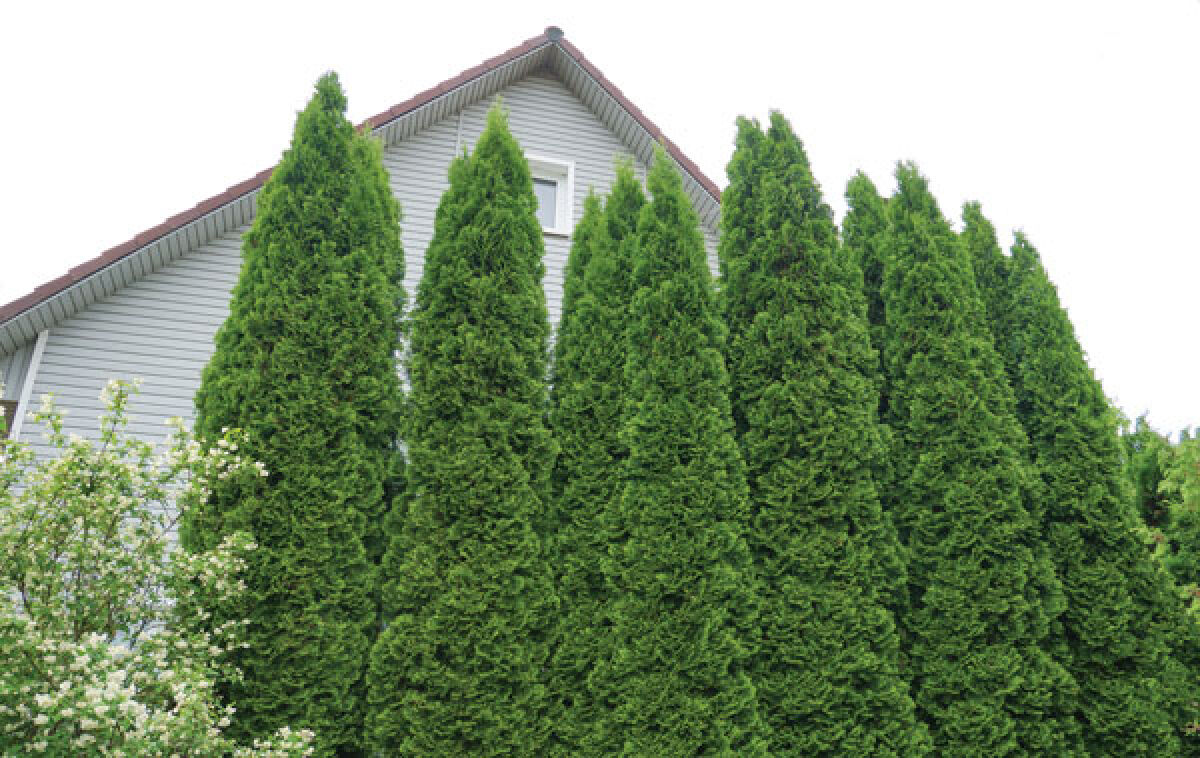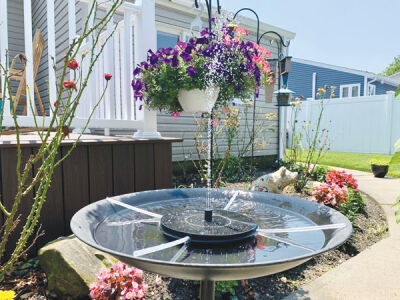METRO DETROIT — Unwanted noise can come from all different directions, whether it is from the road, airplanes or neighbors’ parties.
If your home is located somewhere with bothersome noise, there are several ways to reduce it through natural and man-made products.
Richard A. Kolano, P.E, the principal consultant at Kolano & Saha Engineers, said the length of a sound barrier is important while attempting to reduce noise, especially from a road.
“The sound barrier has to be generally quite long,” Kolano said. “If you have a 50-foot wide lot that backs up against the roadway, unless your neighbors also have a sound barrier that connects to yours and extends along the length of that roadway, your 50-foot length of wall alone is not going to do all that much. That’s why when you see highway road noise barriers there they tend to be fairly long.”
Kolano said the noise-reduction strategy for a yard depends on the geometry of the home relative to the noise source.
“Generally with a sound barrier, there’s an acoustic shadow zone, and the farther out you are from that barrier, the less benefit the barrier provides,” Kolano said. “You need to be in that shadow zone to receive the most benefit.”
Natural barriers
Cameron Judge, the owner of Detroit Landscaping Co., said he tends to prefer natural solutions to remedy noise issues in a yard.
“I, personally, think the more plant life, the better. It looks better, in my opinion,” Judge said.
One natural solution that landscapers often recommend to reduce noise and provide privacy is planting arborvitaes.
“Arborvitaes are probably the best for that, and they do look really good because they get to a decent size, and it is like a natural wall around your property,” Judge said.
Brianna Carrier, a landscape designer for Visionary Landscaping, said people often plant spruce trees and arborvitaes to reduce noise.
“Spruce trees and arborvitaes grow larger and are denser compared to deciduous shrubs that will lose their leaves in the fall,” Carrier said.
Since dirt is a good sound barrier, Kolano suggested people look into living walls, also known as green walls and vertical gardens. Kolano said these are popular in Europe.
“A living wall is essentially a pile of dirt that is stacked up vertically and has plant materials that grow on both sides of it, so the root structure helps to contain the dirt within that wall,” Kolano said. “The plants don’t do much from an acoustic standpoint. It’s the dirt that is providing the sound barrier. The plants make it look attractive.”
Local Acre and Vertical Earth Detroit owner Mark Hanford specializes in the design and installation of living walls.
“What I have noticed is, every time that you have a living wall, it has a definite muting (quality),” Hanford said. “It kind of holds the sound close, and it takes that reflective sound away.”
Fences
Due to the materials, height and density of many fences, they are not as highly recommended by Kolano.
“It’s limited as to when that can be a benefit, because it depends upon the geometry of the home relative to the noise sources, such as the road traffic,” Kolano said. “A fence, per se, isn’t going to do very much. It needs a sound barrier wall, which means it needs to have a significant amount of mass to it that is without penetrations, without separations between boards, for example, that you would have in a fence.”
However, they can provide some benefit, and if one would like to purchase a fence for the benefits they may be able to provide in reducing noise, there are certain things to keep in mind.
Randy Huyck, the general manager at Action Fence of Michigan, said the best fencing material to reduce noise is stone; however, he said it is expensive, and many communities do not allow it. Other options include wood and vinyl fences.
Huyck said it is best to look for the densest materials available. He also recommends planting things around the fence to help absorb sound.
Renee Hannaford, the office manager of Mr. Fence Inc., and Kevin Temerowski, the owner of Michigan Fence Solutions, both recommended a 6-foot-tall vinyl fence to absorb noise.
 Publication select ▼
Publication select ▼





























